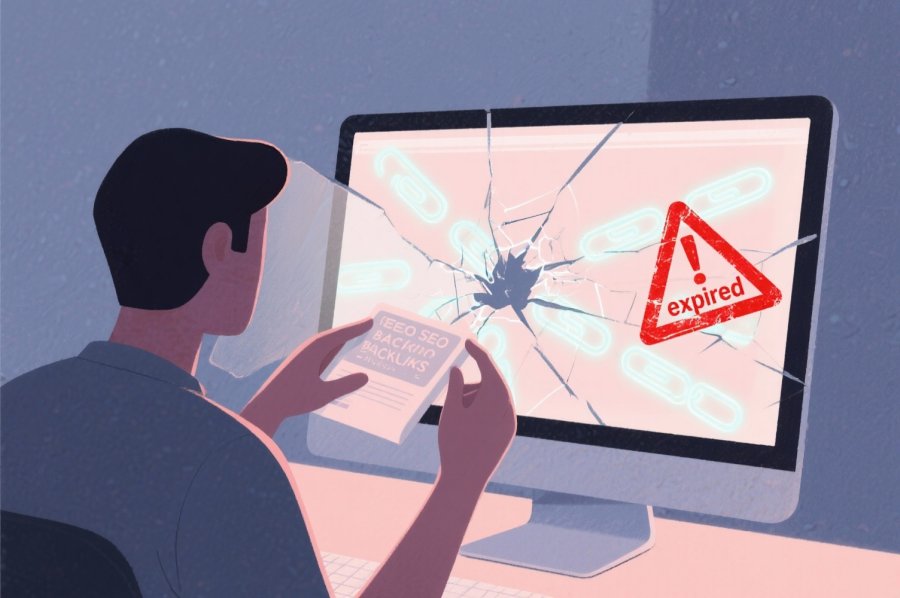Star Trek presents a visionary future where humanity has transcended conflict, embraced diversity, and harnessed technology to explore the cosmos—an inspiring blueprint that fuels real-world innovation and social progress. But does this utopian dream reflect achievable reality or an overly optimistic fantasy? While the series has inspired advances like mobile communication and AI translation, critics argue that social and environmental challenges—climate change, inequality, political unrest—may hinder such seamless harmony. Can technological progress truly foster moral evolution, or are these traits stubbornly rooted in human nature? This tension between aspiration and reality invites us to consider whether Star Trek is a guiding star for future efforts or a tempting ideal that oversimplifies complex issues. Ultimately, its enduring influence pushes us to pursue a better tomorrow, questioning whether collective perseverance and shared values can turn this compelling vision into tangible progress amid ongoing global challenges.
Star Trek’s Vision: A Future of Hope, Harmony, and Discovery
Star Trek’s vision of the future isn’t just entertainment; it’s a reflection of our deepest hopes for what humanity could become. The series paints a picture of a world where peace, cooperation, and curiosity are the norms, showing us a society that has moved past many of the conflicts and divisions that still challenge us today. This optimistic outlook isn’t just wishful thinking—it embodies a core human desire: to see a future where technology supports social harmony and exploration is driven by shared purpose rather than greed or conflict.
At its core, Star Trek suggests that technological progress and social values can grow together. The fictional innovations, like warp drive and universal translators, symbolize the potential for science to break down barriers and expand understanding. These ideas have inspired real-world research—from faster propulsion systems to real-time language translation tools—highlighting the series’ influence on scientific curiosity and innovation. It encourages us to see technology as a tool for uniting people, fostering a future where progress elevates everyone.
The show also champions diversity and inclusion as essential elements of societal strength. Its depiction of a multicultural crew working side by side, regardless of species or background, promotes the idea that embracing differences can be a source of resilience and growth. This hopeful vision invites us to challenge prejudices and build more inclusive communities, reminding us that unity in diversity is key to collective progress.
Star Trek’s focus on exploration and discovery reflects a deep curiosity about the universe and ourselves. The characters’ relentless pursuit of knowledge embodies the belief that curiosity is a fundamental trait that can push societies forward. Whether through fictional technologies or real scientific endeavors, the series frames exploration as a noble pursuit—one that broadens horizons and fuels innovation. It’s a call to keep pushing boundaries, both in space and within human understanding.
While inspiring, this vision isn’t without critics. Many see it as overly idealistic, suggesting that the series glosses over the complexities of real-world progress. Challenges like climate change, political unrest, and economic inequality are persistent, making the seamless society depicted in Star Trek seem distant. Yet, the series functions as a guiding star—an aspirational model that encourages us to strive for a better future, even if the path isn’t always straightforward.
Building the Blueprint: Core Ideas of a United, Tech-Driven Society
The core ideas that support Star Trek’s vision of a better future revolve around unity, diversity, and technological progress. The series depicts a society where humans and many other species work together peacefully, emphasizing that understanding and cooperation can overcome differences. This portrayal suggests that embracing diversity isn’t just a moral ideal but a practical strength that fuels societal growth. By showcasing a multicultural crew, the show highlights how varied perspectives can lead to innovation and resilience, reinforcing the idea that inclusivity and collaboration are essential for a thriving society.
Technology in Star Trek isn’t just about gadgets; it symbolizes progress and hope. Concepts like warp drive enable interstellar travel, inspiring scientific research into faster propulsion methods. Replicators, which can produce food and objects from energy, reflect advances in nanotechnology and 3D printing, pointing toward sustainable manufacturing solutions. Universal translators emphasize the importance of cross-cultural understanding, a goal increasingly pursued through AI and language technologies today. These fictional innovations serve as beacons, demonstrating that science and technology can be harnessed to bridge gaps and elevate human potential.
The series also underscores that social harmony depends on shared curiosity and mutual respect. Characters from different backgrounds and species work side by side, illustrating that diversity can lead to greater creativity and resilience. This optimistic outlook encourages us to see inclusion as a way to strengthen communities rather than weaken them. It challenges prejudices and promotes cooperation, suggesting that collective progress hinges on understanding and valuing differences as sources of strength.
Exploration and discovery are woven into Star Trek’s universe, embodying a fundamental trait—curiosity—that drives both technological innovation and cultural evolution. The characters’ relentless pursuit of knowledge reflects the belief that pushing beyond known boundaries broadens horizons and fuels progress. Technologies like medical scanners and sensors, while fictional, mirror real advances in healthcare. The series frames exploration as a noble endeavor—an essential pursuit that expands our understanding of the universe and ourselves.
Many of Star Trek’s inventions have already inspired real-world innovations. Portable communicators influenced the development of mobile phones, while voice recognition technology echoes the universal translator concept. These examples show how imagination sparks real progress, transforming science fiction into tangible breakthroughs. The series encourages us to see science and technology as tools for unity and progress, motivating ongoing efforts to turn creative ideas into reality that benefits all.
At its core, Star Trek’s utopian vision is rooted in the belief that humanity’s potential is vast when guided by shared values like curiosity, compassion, and cooperation. It presents a blueprint for a future where technology and social harmony work hand in hand. While the journey isn’t without challenges, this vision inspires ongoing efforts toward a more inclusive, innovative, and unified world—reminding us that the future we want is within reach if we commit to the principles that define it.
Facing Reality: Critiques and Limitations of the Idealistic Future
While Star Trek’s optimistic vision offers an inspiring blueprint for the future, critics often point out that it leans heavily into wishful thinking. The series suggests that humanity can quickly evolve beyond greed, conflict, and political divisions, but in reality, progress tends to be slower and more uneven. Global challenges like climate change, economic inequality, and geopolitical tensions remain stubbornly resistant, making the seamless society depicted in Star Trek seem far off. This gap highlights how complex and resistant to change many of our real-world issues truly are.
Another critique is that the series assumes technological progress will automatically lead to moral and social enlightenment. Yet history shows that new technologies can deepen existing inequalities or introduce fresh problems. For instance, innovations are often exploited for harmful purposes or used to entrench social divides. This suggests that technological advancements alone don’t ensure a more just or peaceful society, emphasizing the need for ethical development and regulation—elements that Star Trek doesn’t always fully explore.
The portrayal of a future where diverse species and cultures coexist peacefully can feel uplifting, but it glosses over the difficulties of achieving such harmony today. Many societies still grapple with racial, economic, and political divisions. Efforts toward inclusion often face resistance and setbacks. Building truly unified, multicultural communities takes patience, effort, and sometimes uncomfortable confrontation—a reality that the show’s optimistic narrative can overlook in favor of a smoother story of progress.
A deeper challenge lies in the assumption that human nature will fundamentally change as society advances. The series suggests that traits like greed, violence, and prejudice will fade away with technological and moral growth. But psychological research and history indicate these traits are deeply rooted and often resistant to change. Expecting them to disappear simply because of technological progress may be overly optimistic, risking a disconnect between the ideal and the real.
The series’ portrayal of an effortless moral evolution risks setting unrealistic expectations. Progress is often slow, punctuated by setbacks that can feel discouraging. Recognizing these realities doesn’t diminish the series’ hopeful message but grounds it in a more pragmatic view of how societal change actually occurs. It reminds us that persistence and patience are essential, even when immediate results aren’t visible.
Despite these limitations, the core message of Star Trek remains powerful. Its depiction of a society driven by curiosity, compassion, and shared values continues to motivate real-world efforts. The series encourages us to see progress as a long-term journey—one that requires collective effort, ethical integrity, and resilience. Its optimistic outlook serves as a call to keep striving, even amid setbacks.
Acknowledging these critiques helps us appreciate the series’ role as an aspirational ideal rather than a literal blueprint. It reminds us that true progress involves navigating complexities and embracing ongoing effort. Star Trek’s vision may not be entirely realistic, but it inspires us to aim higher, pushing toward a future where harmony and innovation go hand in hand.
In the end, the series’ greatest value lies in its ability to motivate hope and action. While it may oversimplify some realities, it underscores the importance of dreaming big and working tirelessly for a better world. Recognizing its limitations doesn’t negate its impact; instead, it provides a more balanced perspective—one that encourages realism without losing sight of the possibilities. This balance keeps the spirit of progress alive and reminds us that even imperfect visions can inspire meaningful change.
Understanding these challenges highlights the importance of ongoing efforts to foster social cohesion and technological responsibility. For those interested in how ethical considerations shape technological development, exploring the concept of ethical technology provides valuable insights into creating innovations that serve the greater good.
Inspiring Innovation: How Star Trek Sparks Real-World Change
Star Trek’s influence extends far beyond entertainment, shaping real-world technological innovation in remarkable ways. Many inventions we now rely on, like cell phones and voice recognition tools, trace their conceptual roots back to the series’ visionary ideas. The portable communicator, first seen in the show, inspired engineers to develop mobile phones that revolutionized how we stay connected. Similarly, the universal translator sparked advancements in machine translation and AI-powered voice recognition, leading to tools like Siri and Google Translate. These breakthroughs demonstrate how science fiction can serve as a catalyst, pushing scientists and engineers to turn imaginative concepts into tangible realities.
The series’ optimistic portrayal of a diverse and cooperative future also fuels social movements striving for inclusion and understanding. The multicultural crew of the USS Enterprise embodies a vision of unity across backgrounds and species, encouraging viewers to see diversity as a source of strength. This message has resonated with advocates working to build more equitable communities, inspiring initiatives that challenge prejudice and promote mutual respect. Star Trek’s portrayal of harmony amid difference inspires efforts to bridge divides in the real world, demonstrating that collective progress depends on embracing diversity.
Beyond technological and social influence, Star Trek fosters a spirit of curiosity and exploration that continues to motivate scientists and explorers today. The characters’ relentless pursuit of discovery reflects a core trait—an innate drive to push beyond known boundaries. This mindset fuels advancements in space exploration, medicine, and engineering. Many researchers credit the series with inspiring their ambitions, from developing advanced propulsion systems to improving healthcare diagnostics. Its imaginative universe continues to serve as a blueprint for innovation, reminding us that curiosity is a vital engine of progress.
The impact of Star Trek’s visionary ideas is evident in the innovations integrated into daily life. Mobile communication devices, inspired by fictional communicators, have become essential tools. Voice recognition and AI assistants, echoing the universal translator, power many of our modern conveniences. These examples show how creative concepts from the series have transitioned from fiction to function, driving progress that benefits society. Its influence encourages us to see science fiction as more than entertainment—it’s a blueprint for future breakthroughs.
Star Trek’s hopeful vision also shapes cultural attitudes around diversity and inclusion, motivating ongoing efforts for societal progress. By imagining a future where species and cultures coexist peacefully, the series promotes a message of mutual respect and understanding. This portrayal has inspired countless initiatives aimed at building inclusive communities and overcoming prejudice. Its optimistic message reminds us that progress requires patience, effort, and a shared commitment to a better future—values that continue to inspire real-world change.
Looking Ahead: Continuing the Journey Toward a Better Future
Star Trek’s optimistic vision continues to serve as a powerful source of inspiration, reminding us that technological progress and social harmony can go hand in hand. While the series presents an idealized version of the future, its core message—that human and interspecies potential is vast and worth striving for—remains relevant today. As global challenges like climate change, inequality, and political unrest persist, Star Trek encourages us to pursue innovation and inclusion with hope and perseverance. Progress isn’t just about breakthroughs in technology; it’s rooted in cultivating a mindset driven by compassion, curiosity, and shared purpose.
The influence of Star Trek extends well beyond entertainment. Its depiction of a future where diverse cultures and species coexist peacefully continues to shape efforts for greater inclusion and understanding. Many scientists, engineers, and activists credit the series with sparking ideas that led to innovations like mobile communication devices and AI translation tools. Its optimistic portrayal of cooperation across differences inspires initiatives to build more equitable communities, demonstrating that collective progress depends on embracing diversity and working together.
However, the series’ portrayal of an effortless moral evolution can oversimplify reality. History shows that social, political, and environmental issues are deeply rooted and resistant to quick fixes. Progress often involves setbacks and resistance, making the seamless society depicted in Star Trek more of an aspirational goal than an immediate possibility. Recognizing these complexities doesn’t diminish the series’ hopeful message but grounds it in a realistic understanding that meaningful change takes time, effort, and resilience.
Despite these challenges, Star Trek’s core ideals remain a vital source of motivation. Its depiction of a society driven by curiosity, compassion, and shared values encourages us to keep pushing forward. Small, persistent efforts, even when progress seems slow, contribute to a larger transformation. The series’ optimistic outlook reminds us that hope and perseverance are essential in overcoming obstacles and shaping a better future.
Looking ahead, the principles behind Star Trek’s vision continue to challenge us to harness our collective potential. They urge us to innovate responsibly, prioritize inclusion, and foster a sense of global unity. The future envisioned isn’t just a distant ideal but a goal within reach—if we stay committed to the values of exploration, understanding, and compassion. Every step we take toward these ideals adds momentum to the ongoing journey of progress.
The series’ message is a reminder that progress is a continuous process, built on our choices and values. Its optimistic outlook isn’t about perfection but about persistent effort and collective hope. By embracing exploration, diversity, and kindness, we can turn the inspiring stories of Star Trek into real-world actions. The future it envisions isn’t just a fantasy; it’s a challenge to create a society where technology elevates humanity and unity becomes our greatest strength. The journey begins now, fueled by hope and purpose.






